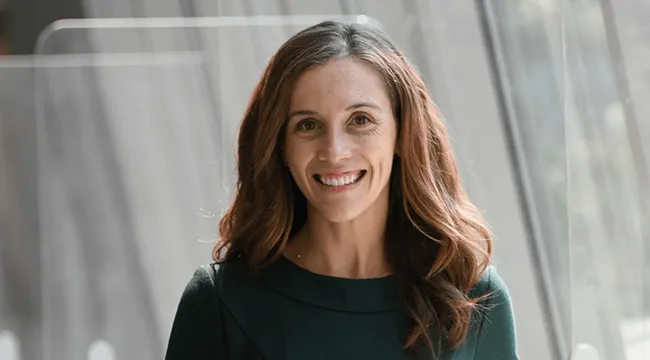Medical oncologist and UVM Cancer Center member Kara Landry, M.D., assistant professor of medicine and co-director of the UVM Cancer Center’s Cancer Genetics and Prevention Program, was quoted in a WCAX-TV story for Breast Cancer Awareness Month about genetic testing providing proactive prevention for breast cancer.
WCAX Reporter Sophia Thomas visited her doctor recently to learn about her own genetic risks; unfortunately, breast cancer runs in her family. The BRCA1 mutation puts her at high risk for breast and ovarian cancer: Compared to the general population, she’s roughly five times more likely to develop breast cancer and 45 times more likely to get ovarian cancer. Genetic screening provides the information she needs to take hold of her health.
Breast oncologist Dr. Kara Landry explains that you’re most likely to get a callback for more imaging, or even a biopsy, after your first MRI. That’s because doctors are getting their first glimpse at your anatomy and anything that might look off.
“That risk drops substantially each time you go, because then they have a collection of images where they can go back and they can say, ‘Nope, this was there five years ago. This hasn’t changed.’ That’s very reassuring,” Landry said.
She says those early, regular screenings help patients navigate preventive care and even catch new growth.
“When we detect cancer at a really early stage through screening breast MRI, and less invasive surgeries or treatments are needed, that’s where you can really see this makes a difference,” Landry explained.
It’s important to remember that while genetic mutations put you at a higher risk of breast cancer, most cases aren’t thought to be hereditary. That means keeping up with screenings is just as important if you don’t have a mutation.
